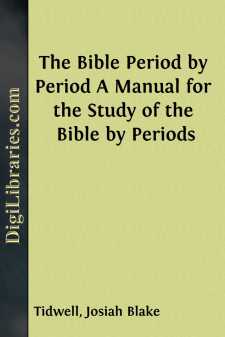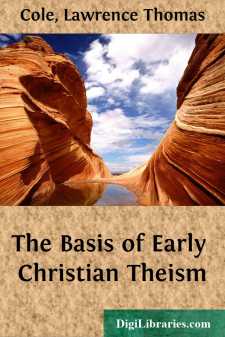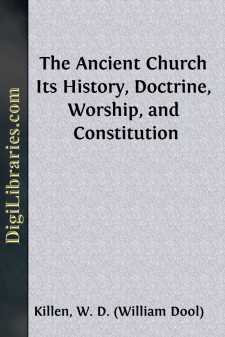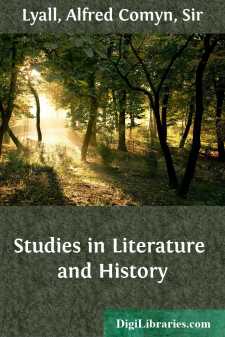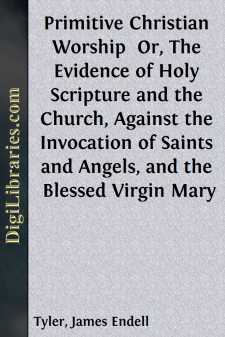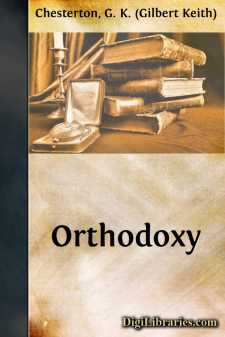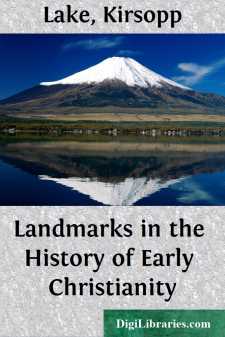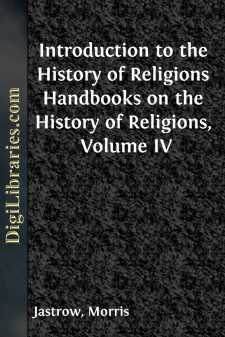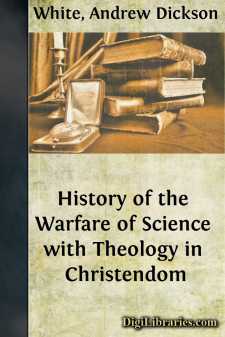Religion
- Agnosticism 2
- Antiquities & Archaeology 21
- Atheism 12
- Biblical Criticism & Interpretation 15
- Biblical Meditations 3
- Biblical Reference 1
- Biblical Studies 11
- Buddhism 8
- Christian Church 52
- Christian Education 5
- Christian Life 26
- Christianity 60
- Cults 2
- Devotional 6
- Eastern 2
- Education 4
- Eschatology 1
- Ethics 3
- General 60
- Gnosticism 1
- Hinduism 15
- History
- Holidays 10
- Inspirational 1
- Islam 8
- Judaism 3
- Leadership 1
- Meditations 3
- Monasticism 1
- Mysticism 11
- Philosophy 4
- Prayer 26
- Prayerbooks 5
- Religion & Science 12
- Sermons 54
- Spirituality 53
- Theism 2
- Theology 17
- Theosophy 15
History Books
Sort by:
CHAPTER I. From The Creation to The Fall. Gen. Chs. 1-3 Problems Solved. This simple narrative solves some of the great problems about which philosophers have speculated and before which scientists have stood baffled. Every child of the human race has asked, "What is the origin of the material world, what is the origin of life, and what is the origin of sin?" In general the philosophers held...
more...
CHAPTER IINTRODUCTION A question which every author ought to ask of himself before he sends forth his work, and one which must occur to every thoughtful reader, is the inquiry, Cui bono?—what justification has one for treating the subject at all, and why in the particular way which he has chosen? To the pertinency of this question to the present treatise the author has been deeply sensible, and...
more...
CHAPTER I. THE ROMAN EMPIRE AT THE TIME OF THE BIRTH OF CHRIST. Upwards of a quarter of a century before the Birth of Christ, the grandnephew of Julius Caesar had become sole master of the Roman world. Never, perhaps, at any former period, had so many human beings acknowledged the authority of a single potentate. Some of the most powerful monarchies at present in Europe extend over only a fraction of...
more...
PREFACE In the Second Series of his Asiatic Studies the late Sir Alfred Lyall republished a number of articles that he had contributed to various Reviews up to the year 1894. After that date he wrote frequently, especially for the Edinburgh Review, and he left amongst his papers a note naming a number of articles from which he considered that a selection might be made for publication. The present...
more...
by:
J. C. McFeeters
I. THE LAND OF THE COVENANTS. All history is interesting and much of it is inspiring. Scotland furnishes a large measure of that quality of history, that awakens the soul, and appeals to the faculties by which life is transfigured with moral grandeur. History yields its best results when we use our best powers in pursuing its paths. Let the creative genius, a healthy imagination, be employed restoring...
more...
CHAPTER I. THE DUTY OF PRIVATE JUDGMENT. Fellow Christians, Whilst I invite you to accompany me in a free and full investigation of one of those tenets and practices which keep asunder the Roman and the Anglican Church, I am conscious in how thankless an undertaking I have engaged, and how unwelcome to some is the task in which I call upon you to join. Many among the celebrated doctors of the Roman...
more...
I INTRODUCTION IN DEFENCE OF EVERYTHING ELSE THE only possible excuse for this book is that it is an answer to a challenge. Even a bad shot is dignified when he accepts a duel. When some time ago I published a series of hasty but sincere papers, under the name of "Heretics," several critics for whose intellect I have a warm respect (I may mention specially Mr. G.S.Street) said that it was all...
more...
by:
Kirsopp Lake
GALILEE At first sight the historian of religions appears to be faced by a number of clearly distinguished entities, to each of which he feels justified in giving the name of a separate religion; but on further consideration it becomes obvious that each one of these entities has been in a condition of flux throughout its history. Each began as a combination or synthesis of older forms of thought with...
more...
by:
Morris Jastrow
CHAPTER I NATURE OF RELIGION 1. It appears probable that primitive men endowed with their own qualities every seemingly active object in the world. Experience forced them to take note of the relations of all objects to themselves and to one another. The knowledge of the sequences of phenomena, so far as the latter are not regarded as acting intentionally on him, constitutes man's science and...
more...
My book is ready for the printer, and as I begin this preface my eye lights upon the crowd of Russian peasants at work on the Neva under my windows. With pick and shovel they are letting the rays of the April sun into the great ice barrier which binds together the modern quays and the old granite fortress where lie the bones of the Romanoff Czars. This barrier is already weakened; it is widely decayed,...
more...


